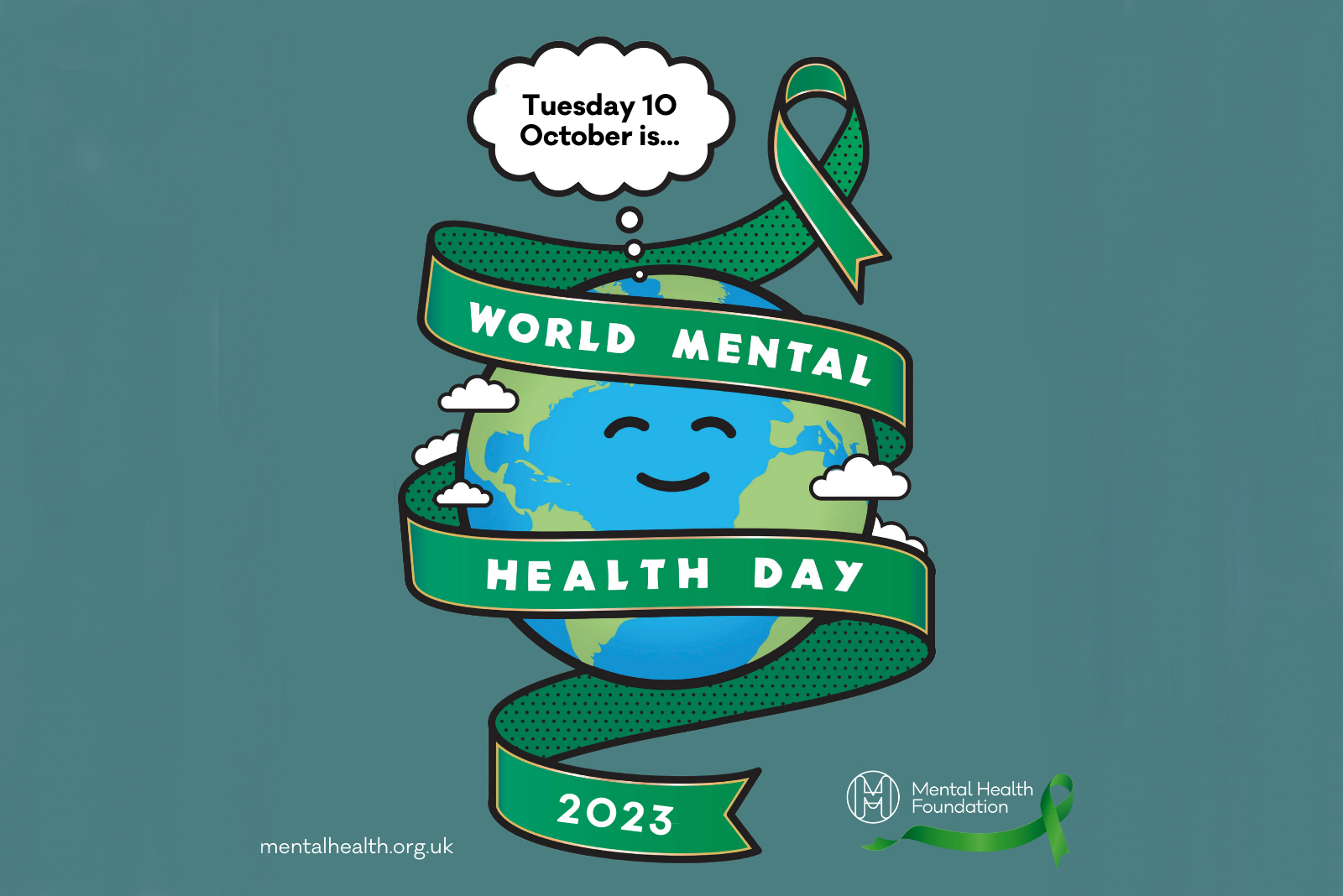
The title of this week’s blog might seem obvious but, in reality, there are all kinds of barriers that prevent people from experiencing good mental health – barriers in our homes, schools and workplaces as well as other issues like simply not knowing how to talk to each other about worries and feelings.
We’ve previously published articles focusing on how to look after your own mental health so, for this year’s mental health day, we’re sharing some tips for how you can check in with and support others.
Checking in with each other
One in eight people across the globe are living with mental health conditions which can impact their physical health, their wellbeing, how they connect with others and their livelihoods. Mental health conditions are also affecting an increasing number of adolescents and young people.
When someone is carrying around worries and difficult feelings, that weight can feel huge and it’s then easy for loneliness to set in, making everything feel even worse. But, having someone whose willing to listen can help that person to work through what’s going on in their lives and start to feel better able to cope. The point to remember is you don’t have to be an expert to help someone. Simply showing your friend, colleague or family member that you care is what matters the most.
How do you know something is wrong?
Everyone copes and reacts in different ways to the troubles and stresses of their lives but there are some general warning signs which might indicate a person is struggling with something. Look out for the following behaviours:
- Not wanting to do things they usually enjoy
- Seeming distracted and less able to concentrate
- Finding everyday things overwhelming
- Being distant (e.g. not answering calls or replying to messages)
- Avoiding people, hiding away or seeming quiet
- Appearing angrier or more agitated than usual
- Easily tearful
How to open up a conversation
There’s an old saying which says ‘A problem shared is a problem halved’ and, although it’s not often as simple as that, having conversations about mental health and the underlying causes of any issues is really important. However, starting that conversation isn’t always the easiest thing to do so here are a few basic tips.
- Find a good time and space where you know you can have a conversation without distractions. This could be over a lunch break, during a walk or at a café, depending on where the other person feels comfortable.
- Focus on your listening skills and ask questions to clarify points and show that you’re listening. Try to use open questions that need more than a ‘yes’ or ‘no’ answer but also remember not everyone will want to discuss things in minute detail.
- Avoid giving your view of what’s wrong or what they should be doing. Instead, ask how you can help or make some suggestions. For example, they might want support with making a GP appointment, help with household chores or work commitments, or just for you to keep things normal and chat about what’s going on in your life.
Be a good listener
- Give the other person your full attention. Turn your phone off and make sure you won’t be interrupted.
- Try to make eye contact, unless the other person is uncomfortable with it.
- Be relaxed as this it helps you to come across as genuine and engaged with what they’re saying.
- Don’t be scared of pauses. Try not to jump in to fill a silence but if the other person is silent for a long time, you could try to get the conversation going again by repeating back to them what you think they’re trying to tell you.
- Don’t give up. Sometimes it can take a few tries for someone to open up.
Help someone get further help
If you think someone is really struggling to cope, you might want to suggest they get some outside help.
You could start by asking if they’ve tried their GP or would like support going to an appointment. Or you could signpost them to another organisations where they could access information, resources and support. Here are just a few:
- Mental Health Foundation
- MIND
- Samaritans
- Mental Health First Aid England
- Every Mind Matters | One You – NHS
- Anxiety UK
- Shout 85258
Also, check out these blogs we published previously:
Make mental health your priority (World Mental Health Day 2022)
Let’s focus on our mental health (Mental Health Awareness Week 2021)
10.10.2023
Feature image: Mental Health Foundation
Sources of Information: Mental Health Foundation/ Samaritans








